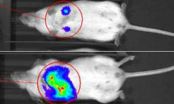(Press-News.org) To get the most enjoyment out of our dollar, science tells us to focus our discretionary spending on experiences such as travel over material goods. A new Cornell University study shows that the enjoyment we derive from experiential purchases may begin even before we buy.
This research offers important information for individual consumers who are trying to "decide on the right mix of material and experiential consumption for maximizing well-being," said psychology researcher and study author Thomas Gilovich of Cornell University.
Previously, Gilovich and colleagues had found that people get more retrospective enjoyment and satisfaction from their experiential purchases than from their material purchases. And other research has shown that people often hold off on experiences so that they can savor the thought of eventually having them.
Gilovich and co-authors Amit Kumar of Cornell University and Matthew Killingsworth of University of California, San Francisco wanted to bring these lines of research together and investigate whether the enjoyment we get from the anticipation of a purchase depends on what we're buying.
The researchers discovered that people thinking about impending experiential purchases, such as ski passes or concert tickets, have higher levels of happiness than those who anticipate spending money on things.
In addition, researchers found the act of actually waiting in line to make a purchase may be more pleasant for those intending to spend money on an experience. In one, an analysis of newspaper accounts of crowds of people waiting in line, found that those waiting to purchase an experience were in better moods and were better behaved than those waiting to purchase material goods.
"You sometimes hear stories about people rioting, smashing windows, pepper-spraying one another, or otherwise treating others badly when they have to wait," said Kumar. "Our work shows that this kind of behavior is much more likely in instances where people are waiting to acquire a possession than when they're waiting for tickets to a performance or to taste the offerings at their city's newest food truck."
The researchers speculate that there may be several factors that could explain these findings. People may think about future experiences in more abstract ways that can make them seem more significant and more gratifying, for example. It's also possible that waiting for an experience induces less competition than waiting for material goods. Finally, anticipating experiences may confer greater social benefits, making people feel more connected and happier overall.
The findings have clear implications for individual consumers, but they could also inform the way money is spent on a much broader scale:
"Our research is also important to society because it suggests that overall well-being can be advanced by providing an infrastructure that affords experiences – such as parks, trails, beaches – as much as it does material consumption," says Gilovich.
INFORMATION:
The findings were published in Psychological Science and supported by the National Science Foundation and by a grant from the John Templeton Foundation through the Greater Good Science Center.
Experiences make you happier than possessions -- Before and after
2014-09-02
ELSE PRESS RELEASES FROM THIS DATE:
Diabetes mellitus and mild cognitive impairment: Higher risk in middle age?
2014-09-02
Essen, Germany, September 2, 2014 – In a large population-based study of randomly selected participants in Germany, researchers found that mild cognitive impairment (MCI) occurred twice more often in individuals diagnosed with diabetes mellitus type 2. Interestingly, this strong association was only observed in middle-aged participants (50-65 years), whereas in older participants (66-80 years) the association vanished. This study is published in the Journal of Alzheimer's Disease.
The concept of MCI describes an intermediate state between normal cognitive aging and dementia. ...
This week From AGU: California earthquake, future Mars rovers, models underestimate ozone
2014-09-02
From AGU's blogs: Earthquake rupture through a U.S. suburb
Observations and mapping by seismologists at the University of California Davis in the hours and days after the August 24 earthquake in northern California are helping scientists understand why the earthquake caused so much damage in the region, according to a post in The Trembling Earth blog, hosted by the American Geophysical Union.
From this week's Eos: Future Mars Rovers: The Next Places to Direct Our Curiosity
Selecting where the next Mars rovers will land involves a series of open-invitation workshops ...
‘Prepped’ by tumor cells, lymphatic cells encourage breast cancer cells to spread
2014-09-02
Breast cancer cells can lay the groundwork for their own spread throughout the body by coaxing cells within lymphatic vessels to send out tumor-welcoming signals, according to a new report by Johns Hopkins scientists.
Writing in the Sept. 2 issue of Nature Communications, the researchers describe animal and cell-culture experiments that show increased levels of so-called signaling molecules released by breast cancer cells. These molecules cause lymphatic endothelial cells (LECs) in the lungs and lymph nodes to produce proteins called CCL5 and VEGF. CCL5 attracts tumor ...
Cool calculations for cold atoms
2014-09-02
Chemical reactions drive the mechanisms of life as well as a million other natural processes on earth. These reactions occur at a wide spectrum of temperatures, from those prevailing at the chilly polar icecaps to those at work churning near the earth's core. At nanokelvin temperatures, by contrast, nothing was supposed to happen. Chemistry was expected to freeze up. Experiments and theoretical work have now show that this is not true. Even at conditions close to absolute zero atoms can interact and manage to form chemical bonds.
Within this science of ultracold ...
Enzyme controlling metastasis of breast cancer identified
2014-09-02
Researchers at the University of California, San Diego School of Medicine have identified an enzyme that controls the spread of breast cancer. The findings, reported in the current issue of PNAS, offer hope for the leading cause of breast cancer mortality worldwide. An estimated 40,000 women in America will die of breast cancer in 2014, according to the American Cancer Society.
"The take-home message of the study is that we have found a way to target breast cancer metastasis through a pathway regulated by an enzyme," said lead author Xuefeng Wu, PhD, a postdoctoral researcher ...
Study links sex hormone levels in the blood to risk of sudden cardiac arrest
2014-09-02
LOS ANGELES (Sept. 2, 2014) – Measuring the levels of sex hormones in patients' blood may identify patients likely to suffer a sudden cardiac arrest, a heart rhythm disorder that is fatal in 95 percent of patients.
A new study, published online by the peer-reviewed journal Heart Rhythm, shows that lower levels of testosterone, the predominant male sex hormone, were found in men who had a sudden cardiac arrest. Higher levels of estradiol, the major female sex hormone, were strongly associated with greater chances of having a sudden cardiac arrest in both men and women. ...
UO-Berkeley Lab unveil new nano-sized synthetic scaffolding technique
2014-09-02
EUGENE, Ore. -- Scientists, including University of Oregon chemist Geraldine Richmond, have tapped oil and water to create scaffolds of self-assembling, synthetic proteins called peptoid nanosheets that mimic complex biological mechanisms and processes.
The accomplishment -- detailed this week in a paper placed online ahead of print by the Proceedings of the National Academy of Sciences -- is expected to fuel an alternative design of the two-dimensional peptoid nanosheets that can be used in a broad range of applications. Among them could be improved chemical sensors ...
Microphysiological systems will revolutionize experimental biology and medicine
2014-09-02
The Annual Thematic issue of Experimental Biology and Medicine that appears in September 2014 is devoted to "The biology and medicine of microphysiological systems" and describes the work of scientists participating in the Microphysiological Systems Program directed by the National Center for Advancing Translational Sciences (NCATS) of the National Institutes of Health (NIH) and funded in part by the NIH Common Fund. The Defense Advanced Research Projects Agency (DARPA) and the Food and Drug Administration (FDA) are collaborating with the NIH in the program. Fourteen of ...
An uphill climb for mountain species?
2014-09-02
A recently published paper provides a history of scientific research on mountain ecosystems, looks at the issues threatening wildlife in these systems, and sets an agenda for biodiversity conservation throughout the world's mountain regions.
The paper, "Mountain gloom and mountain glory revisited: A survey of conservation, connectivity, and climate change in mountain regions," appears online in the Journal of Mountain Ecology. Authors are Charles C. Chester of Tufts University, Jodi A. Hilty of the Wildlife Conservation Society, and Lawrence S. Hamilton of World Commission ...
Sabotage as therapy: Aiming lupus antibodies at vulnerable cancer cells
2014-09-02
New Haven, Conn. — Yale Cancer Center researchers may have discovered a new way of harnessing lupus antibodies to sabotage cancer cells made vulnerable by deficient DNA repair.
The findings were published recently in Nature's journal Scientific Reports.
The study, led by James E. Hansen, M.D., assistant professor of therapeutic radiology at Yale School of Medicine, found that cancer cells with deficient DNA repair mechanisms (or the inability to repair their own genetic damage) were significantly more vulnerable to attack by lupus antibodies.
"Patients with lupus ...



